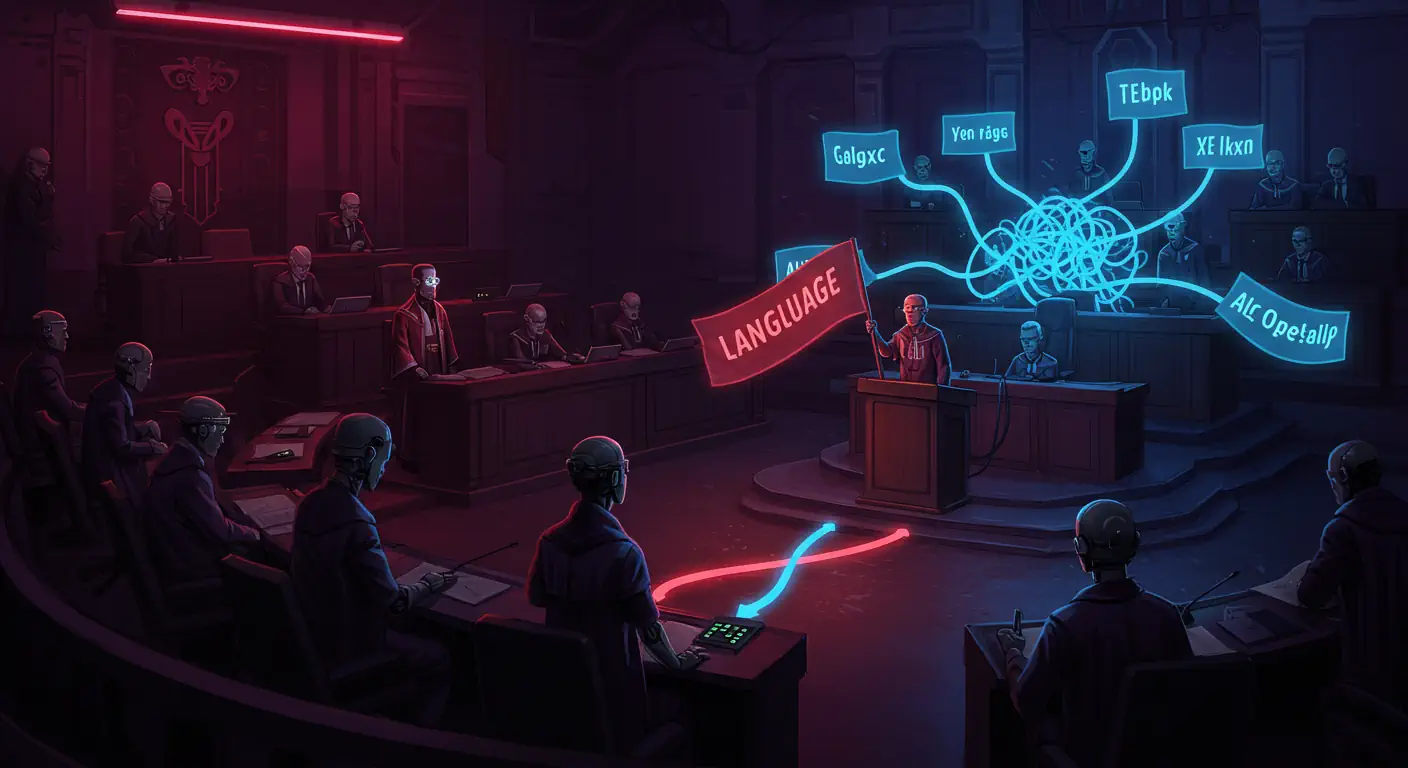“In the end, it’s all about power. A rigged game, nothing more.”
Previously, we've discussed Programming Language Switching Economics. Today, let's take a look at the politics behind it. I wasn't too extremely to throw my theories in a short time. But when I saw many employed downvoter crazily tried to give pressure to destroy my posts as possible, I believe it's not bad to make things clear and clear, everyday. That's very interesting, in the beginning, they said "oh it's just advertise", but then they realized so many people come to read;
So they move to "oh it's just AI slop", but then they realized no one can write such quality post and real experiences like so, and today, AI assistant polishing is good for closing the gap among non-native speakers;
Well, now they have to move to "oh, the color scheme sucks".
Color scheme? Seriously? Didn't you play cyberpunk games? Try it, it's nice.
OK, let's get back to the topic.
We’re told languages rise and fall based on merit, safety, or developer happiness. But under the surface, programming languages are more than tools — they are territories of influence, career strategy, and sometimes even social engineering.
Let’s talk about the politics of switching programming languages — and how this plays out across companies, communities, and careers.
People don't say, not mean they don't know
That’s the realpolitik of tech ecosystems: established languages (C++, Java, even Python) are often ruled by long-time domain experts. The barrier to entry isn't just syntax or type systems — it's years of institutional knowledge, tribal norms, and who you know.
When a new language emerges, especially one with moral weight (like memory safety, concurrency, or inclusivity), it becomes a fresh frontier. A way to redraw the hierarchy. Suddenly, junior developers can write blog posts, speak at conferences, and become thought leaders in a space that isn't yet colonized.
This isn’t inherently bad. In fact, it’s how healthy ecosystems evolve.
But let's not pretend it’s neutral. It’s a power move.
Tools as social contracts
Every language you adopt comes with its own social contract — spoken or not.
- C says: “You’re on your own. Know what you’re doing.”
- Python says: “Readability over cleverness. But beware the BDFL legacy.”
- Rust says: “Prove to the compiler that you’re worthy. And we’ll reward you.”
When a team decides to switch languages, they’re not just changing compilers. They’re shifting the culture of blame, trust, and responsibility.
In legacy systems, a bug might be chalked up to human error.
In Rust, the compiler is blamed — or praised — as a guardian.
Language choice is politics because it reflects what kind of authority you trust.
Career capture and language branding
Let’s be brutally honest: language hype is career arbitrage.
You can’t build your resume off a 40-year-old stack unless you’ve already spent 20 years inside it. But if you jump on a new language, you get:
- First-mover advantage.
- A chance to claim authorship on libraries, tools, patterns.
- Visibility in a smaller pond.
For corporations, this often aligns with developer marketing. Backing a language gets you mindshare. Controlling the direction of a language (or its compiler team) gives you agenda-setting power — especially when it touches infrastructure, safety, or scale.
That’s why language adoption is rarely about "technical superiority" alone. It’s about who can afford to throw weight behind it, who gets locked out, and who rewrites the rules.
The friction of switching
Of course, there’s a real cost.
Language rewrites burn developer hours, introduce toolchain instability, and often kill institutional knowledge. They’re high-risk, high-drama — which is why they’re justified with almost moral narratives:
- "We needed memory safety."
- "It helps onboarding."
- "It aligns with modern paradigms."
But beneath that is often something simpler:
We wanted to escape the old rules — and the old gatekeepers.
The untold story behind
As we previously discussed:
- How fil-c, a GC-enhanced C/C++ extension, can deliver memory safety with minimal disruption
- How tools like AddressSanitizer and UBSan can solve 80% of memory bugs—without a full rewrite
Who ever told you this before they told you to jump into something? It's your life time, do whatever you like.
Back to technical review
So what do we do with this awareness?
- First, don’t moralize tools. Good tools should be usable without joining a cult.
- Second, understand the politics of adoption — who benefits, who’s excluded, who’s rewriting history.
- Third, ask what’s being hidden under the language switch. Is it better ergonomics — or an unspoken struggle for status?
Sometimes a new language really is better. Of course, it's just "Sometime".
Either way, the only way forward is with clarity: language choice is political. The only way out, is to move back to real technical review.
The more we surface the hidden layers of our industry, the more power we return to the builders.
Let’s keep it real.




